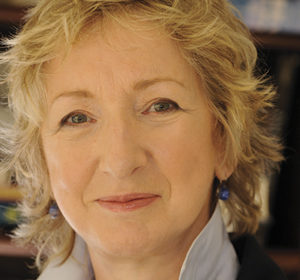It was the first time that I knew the full weight of Irish America. Coming from a small country with few people, it’s difficult for an immigrant to grasp that in a place as big as America, the Irish could wield such power. I’m talking about the first Irish-American Presidential Forum in 1992. It was arranged by then-assemblyman John C. Dearie. I don’t remember the venue, but I do remember the excitement in the room when candidate Bill Clinton, then the governor of Arkansas, showed up. Truth be told, having lived in California, I was a Jerry Brown fan. I might even have been wearing my “We the People” T-shirt. Brown was good on Ireland. He had a policy paper. But Brown was late, and by the time he got to the forum, Clinton had stolen the show.
By then, Martin Galvin of NORAID had asked the question: Would Clinton grant Gerry Adams a visa to visit the U.S. if there was an I.R.A. ceasefire? Clinton said, “Yes.”
The genesis of what became the Good Friday Agreement was in the room that night. Over the following years, I watched it play out. I saw the power of Irish America being brought to bear on the Troubles and other issues important to the Irish. I saw the thrust of it in Adrian Flannelly’s work on immigration reform. I saw it, too, in the good will extended by Irish-American writers to Terry George, now an award-winning writer and director. And I saw, and continue to see, the love of heritage and the sharing of it, by Charlotte Moore and Ciarán O’Reilly, who for 30 years have been nourishing the soul of Irish America with their Irish Repertory Theatre productions, right here in New York City.
Nowhere is the story of Irish America more arresting than in New York. It’s astonishing to look at the brass plates that adorn the wall in NYPD Commissioner O’Neill’s office – Irish name after Irish name – McGuire, Kelly, Murphy, McLaughlin, Ryan, and on and on: all of whom, at one time, held the job of commissioner, and oversaw what is the largest police department in the United States.
O’Neill, as you will read in Maggie Holland’s cover story, is truly one of New York’s finest. He rose through the ranks from subway cop back in the 1980s, when New York’s transit system was one of the most dangerous in the country, to become New York’s top cop overseeing a neighborhood policing strategy that is bearing fruit, and as commissioner, he’s championing female empowerment and gender equality within the force.
For all of our success in America, we Irish are travel birds who have settled in every corner of the globe, and wherever we go the music goes with us. Listen to Arturo O’Farrill’s “Oh Danny Boy,” or “She Moved Through the Fair.” These traditional Irish songs infused with Cuban, Mexican, and Afro flavors will touch your heart.
We are thrilled to induct Arturo, Adrian, Ciarán, Charlotte, John, Terry, and James into our Hall of Fame on March 14th. We know you will enjoy reading all about them in the following pages. Also included in this issue for your reading pleasure are stories of a couple of trailblazers from a bygone era who would be worthy Hall of Fame inductees were they around today: Isadora Duncan, daughter of an Irish immigrant, who threw tradition to the wind and became the mother of modern dance; and Hugh Daily, born in Ireland in July, 1847 (the worst month and year of the Famine). At 16, Hugh lost a hand in an accident, but he went on to pitch in the major leagues. So, this St. Patrick’s Day, raise a glass to all that’s been achieved. Dance and sing and enjoy a jar, if that’s your thing. But no resting on laurels. Northern Ireland is again in the news, with worries about the border being reinstated between the Republic and the North when Britain leaves the E.U., and immigration continues to be an problem (last year the Irish got 1/3 of one percent of the 50,000 diversity visas issued annually). Fortunately Irish Americans, including some of those who were involved in the peace process, are on the ball. But your voice is needed. John Dearie says: “We need to get young people involved…on Brexit, the MacBride Principles, Irish visas…there’s a whole generation that has not heard the message: America has a vital role to play.”
Mórtas Cine. ♦


Leave a Reply